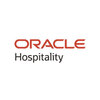Wyndham and Accor accelerate their digital transformation with OPERA Cloud

Every hotelier knows that digitizing the guest journey is an imperative to give consumers different ways to engage with the brand. And it’s no secret that cloud technology can play a pivotal role in the transformation.
Yet some remain hesitant to move to cloud, based on misconceptions that the journey might be too daunting. But in a recent video interview, tech executives from two of hospitality’s premier brands, Wyndham Hotels & Resorts and Accor, shared their insights for expedited cloud adoption – and reminded us that upgrading with on-premises solutions is hardly a picnic.
The fact is, deploying on-premises technology involves numerous variables and potential failure points that can implode even the best-laid plans, according to Christine Keller, senior director, global deployment operations, for Wyndham Hotels & Resorts, and Bertrand Blacha, Accor’s vice president for global hotel technology.
“You would have hardware delivery delays, incorrect operations systems loaded in, you would have imaging challenges occasionally, or have server failures after everything is unboxed, connected, and ready to go,” Keller said. “When you have those issues not only do they absorb significant time in the schedule and require a lot of reworking of that schedule, the properties get frustrated, and it’s a terrible experience for them right out of the gate. It’s very hard to recover from that.
“What I like about cloud is, that these are the worries that we don’t have to pay attention to,” she added. “We can just focus on product training and supporting our properties without these unpredictable distractions.”
Blacha made his point about deploying cloud, succinctly: “It’s nothing compared to on-premises. It’s really faster.”
Preparation is everything
No one is suggesting that a transition to cloud should be taken lightly. But with a well-conceived plan, deployment can be executed quickly and at scale. In fact, Wyndham’s conversion is averaging about 10 properties per month through 2021, and then the hotelier is anticipating increasing that pace to 10 or more properties per week, according to Keller.
Preparation is everything, Blacha insisted. His advice: Do at least two or three pilots to validate your assumptions and collaborate as one team to anticipate as much as possible. “You really need to understand the new architecture and how things are now working,” he said.
At Wyndham, Keller said, “Our goal was to implement OPERA Cloud swiftly to our properties so that they could realize the immediate benefits of leveraging the secure cloud platform and all its convenient mobile capabilities – with mobility being top of mind for all in the industry at this time.”
That meant collaboration, which spanned across her organization for planning and execution and included: Wyndham’s product team, overseeing development and application requirements for essential tools for programs such as Wyndham Rewards; the global sales organization; and technology support teams. The effort also incorporated Wyndham’s training team, which helped develop additional materials for OPERA Cloud, field operations, and a continuous dialogue with Oracle.
“As one of our primary touchpoints with our franchisees, (field operations) helps to explain and make sense of our strategies in a way that resonates for our franchisees and better sells the story of OPERA Cloud,” Keller said. Wyndham also involved integration partners such as those responsible for EMV compliance and deployment of contactless payment solutions.
Capitalizing on Oracle Hospitality Integration Platform
Accor emphasized integrations, too, and cloud’s ability to execute them simply and efficiently. In a marketplace still recovering from pandemic uncertainty and evolving with consumers’ constantly changing expectations, hoteliers need to be agile and possess the capability to offer new services and products. Integration is the avenue for such innovation. Accor selected OPERA Cloud, in part, because of its built-in Oracle Hospitality Integration Platform. OHIP allows partners and vendors to connect to OPERA Cloud, giving them unimpeded access to the data and functionality within it for faster product development.
“OHIP is one of the reasons we moved to OPERA Cloud,” Blacha said. “We think it will offer so many possibilities with partners that was not possible (before) today.”
Efficient staff training is a must, especially amid a labor shortage
A smooth transition to OPERA Cloud also is made possible because of advancements in hotel staff training.
“By the fact that we no longer have to be on property for 10 or more days to install and train OPERA for a franchisee is a significant accomplishment,” Keller said. “Having a property leverage eLearning in advance of formal training has also been significant in that they’re learning basic system knowledge before we’re getting into the proverbial nuts and bolts of the application.”
Remote instruction, eLearning, and Zoom sessions all combine to get staff up and running and serving guests, which is priority No. 1, especially as the industry struggles with an intense labor shortage.
“We all know that learning something new while you’re in the middle of doing your job – that’s a lot to take in,” Keller said. “But having the ability to go back to listen to a recording or access specific content is very helpful.”
Forging a true business partnership
Receiving such service and assistance played a major role in Wyndham’s decision to partner with Oracle Hospitality.
“To deliver a technology solution to a large number of properties in a specific period of time, you have to be completely aligned as partners and be willing to share the feedback that will enable us to collectively continue to transform this process and, most importantly, the property and our guest experiences,” Keller said. “We’re fortunate to have an account team at Oracle that transparently recognizes this as an essential aspect of our continuing long-term success.”
